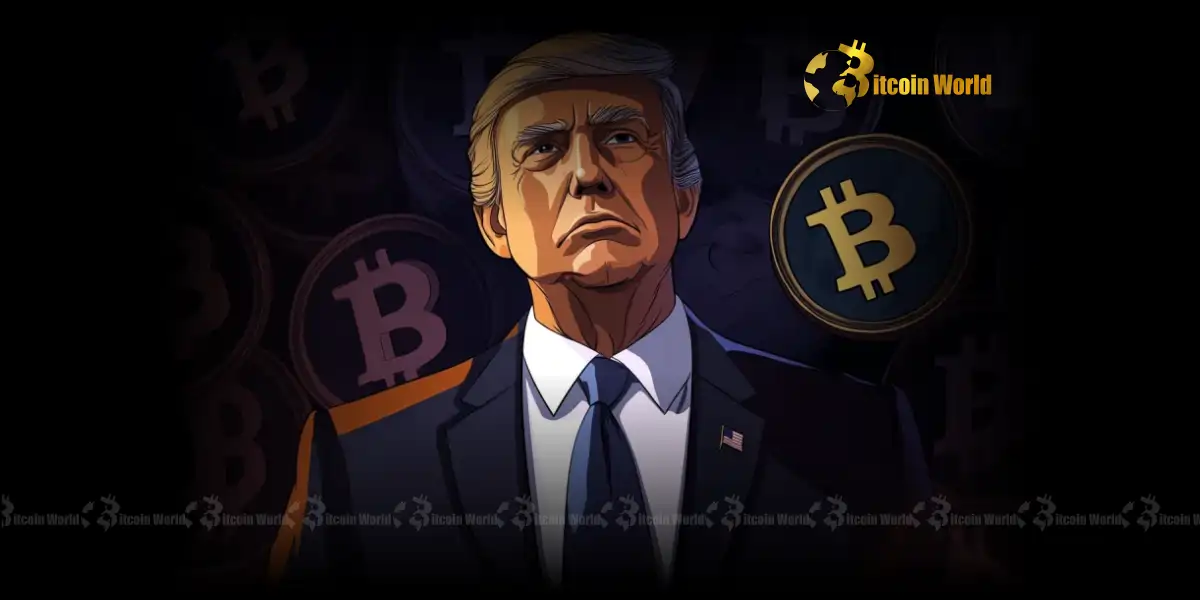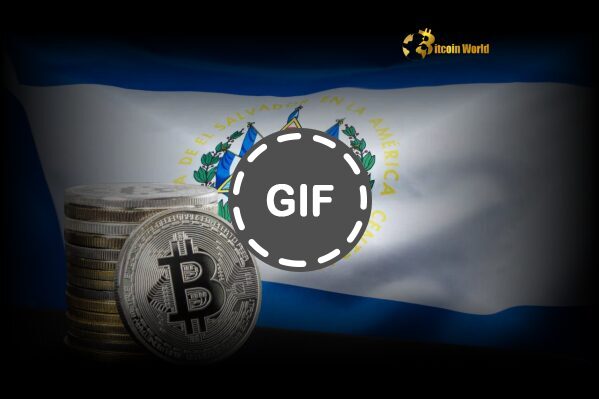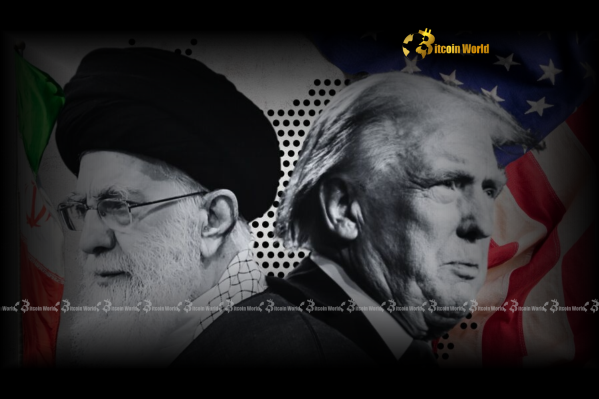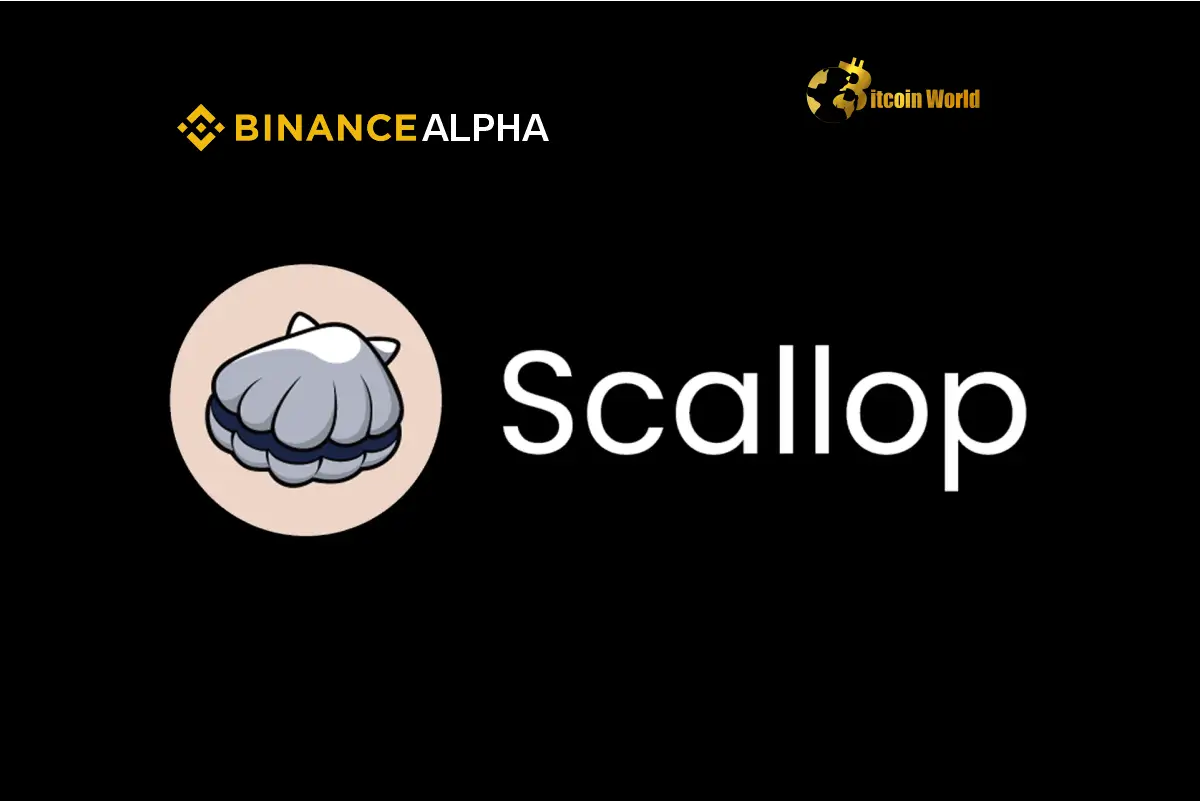BitcoinWorld
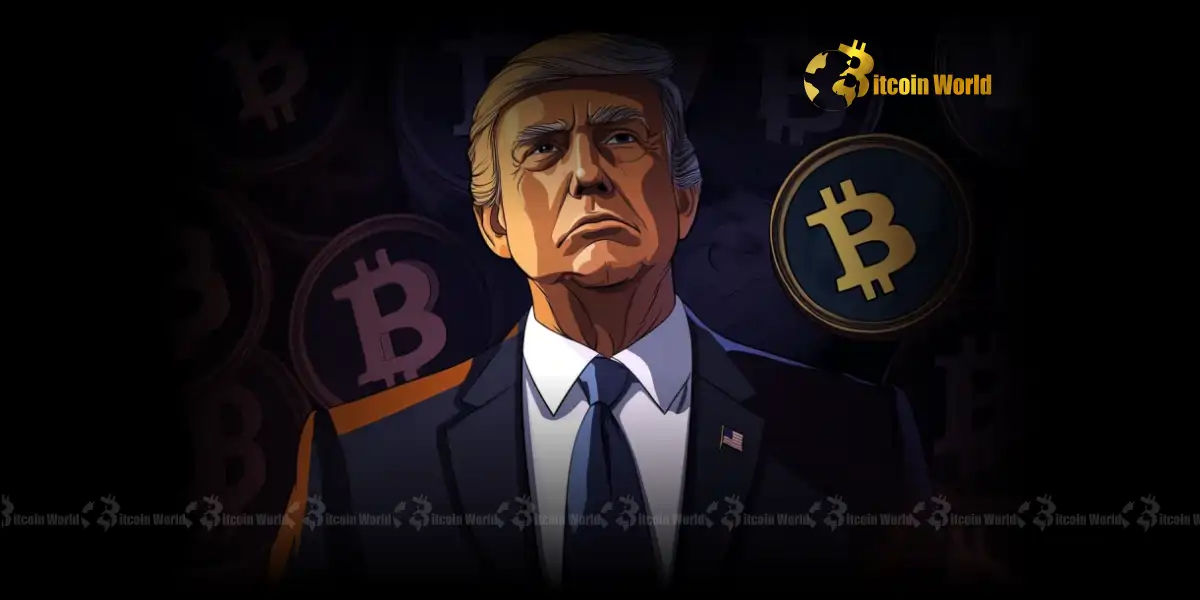
Trump Administration Crypto: Unveiling Significant Digital Asset Holdings
The intersection of politics and cryptocurrency is becoming increasingly evident, and a recent Washington Post review has brought this into sharp focus. Prepare to delve into a fascinating revelation: more than one in five senior Trump administration crypto officials and nominees disclosed personal holdings in digital assets or investments in blockchain firms. This isn’t just about a few individuals; it paints a picture of a growing trend where political figures are directly engaging with the evolving world of decentralized finance.
Unveiling Trump Administration Crypto Holdings: What Did the Disclosures Show?
The Washington Post’s comprehensive review, which scrutinized nearly 300 top-level appointees’ financial disclosures, uncovered some truly noteworthy figures. It highlights a significant embrace of digital assets within the highest echelons of power, even as the regulatory landscape for cryptocurrencies remains under debate.
- A Significant Proportion: Over 20% of senior Trump administration officials and nominees held either direct cryptocurrency assets or stakes in blockchain-related companies. This statistic alone challenges the perception that crypto is a niche interest, suggesting its widespread adoption even among traditional power brokers.
- President Trump’s Personal Stake: Perhaps one of the most striking revelations is that U.S. President Donald Trump himself reported a personal stake of at least $51 million in digital assets. This figure underscores the high-value nature of some of these holdings.
- Broader Cabinet Involvement: Beyond the President, Vice President JD Vance and seven Cabinet members or nominees collectively disclosed more than $2 million in combined digital asset holdings. This indicates a broader pattern of engagement with the crypto space across various departments and roles within the administration.
Who Are the Government Officials Crypto Holdings Revealed?
While the overall statistics are compelling, the individual stories behind these disclosures offer even more insight into the diverse range of digital asset holdings among public servants. These are not just abstract numbers; they represent tangible investments by influential figures.
Here’s a quick look at some of the prominent figures and their disclosed holdings:
| Official/Nominee | Role | Disclosed Crypto/Blockchain Holdings |
|---|---|---|
| Donald Trump | U.S. President | At least $51,000,000 |
| Kenneth Howery | Nominee for Ambassador to Denmark | Exceeding $122,000,000 (largest reported) |
| JD Vance | Vice President | At least $250,000 |
| Seven Cabinet Members/Nominees | Various Cabinet Positions | Combined over $2,000,000 |
Kenneth Howery, notably, stood out with the largest reported holding, exceeding an astonishing $122 million. This significant figure points to the substantial wealth that some individuals have accumulated through their early involvement or strategic investments in the crypto and blockchain sectors before entering public service. Vice President JD Vance’s holding of at least $250,000 further solidifies the presence of government officials crypto holdings at high levels.
Understanding Crypto Financial Disclosures: Why Do They Matter So Much?
Financial disclosures for public officials are a cornerstone of transparency and accountability in democratic governance. They are designed to prevent conflicts of interest and ensure that officials are acting in the public’s best interest, not their own financial gain. When it comes to cryptocurrency, these disclosures take on a new layer of complexity and importance.
The White House spokesperson’s statement that these investments reflect “success in the private sector” and that “conflicts of interest are not tolerated” is a crucial part of this narrative. However, the unique characteristics of digital assets present certain challenges:
- Valuation Volatility: Unlike traditional assets, cryptocurrency values can fluctuate wildly, making precise and consistent valuation for disclosure purposes challenging.
- Regulatory Ambiguity: The lack of clear, comprehensive regulations for digital assets can create grey areas regarding what constitutes a conflict of interest or insider trading when officials hold substantial crypto.
- Public Perception: Even if no actual conflict exists, the perception that officials might be influenced by their personal crypto holdings can erode public trust.
These challenges highlight why robust and clear guidelines for crypto financial disclosures are not just important, but essential for maintaining ethical standards in government.
The Broader Implications of Political Crypto Investments: A New Era?
The fact that so many influential figures within a presidential administration hold significant crypto assets signals a pivotal shift. This isn’t just a niche financial instrument anymore; it’s entering the mainstream of wealth and influence. What does this mean for the future?
Benefits:
- Informed Policy-Making: Officials with direct experience and financial stakes in digital assets may possess a deeper understanding of the technology and its potential, potentially leading to more informed and forward-thinking policies.
- Legitimization: High-profile political crypto investments can inadvertently lend a sense of legitimacy and stability to the nascent crypto market, encouraging broader institutional and retail adoption.
Challenges:
- Conflict of Interest Concerns: The primary concern remains the potential for officials to make policy decisions that directly benefit their personal portfolios, or to use privileged information for financial gain.
- Regulatory Pressure: The presence of significant political crypto investments could intensify calls for stricter regulations to prevent abuses, or conversely, lead to lobbying efforts that favor specific digital asset classes.
The increasing prevalence of political crypto investments necessitates a careful balance between fostering innovation and ensuring ethical governance.
Navigating the Future of Digital Asset Holdings in Public Service
As digital assets become an undeniable part of the global financial landscape, governments worldwide will face the imperative to adapt their ethics and disclosure frameworks. The disclosures from the Trump administration serve as a powerful precedent, highlighting the urgent need for clear guidelines.
Actionable Insights for the Future:
- Updated Ethics Guidelines: Governments must develop clear, comprehensive ethics guidelines specifically tailored to digital assets, addressing valuation, reporting, and conflict of interest rules.
- Mandatory Training: Officials should undergo mandatory training on the unique aspects of digital assets and their ethical implications.
- Transparent Reporting Mechanisms: Disclosure systems need to be robust enough to handle the dynamic nature of crypto holdings, potentially requiring more frequent updates or specific asset class reporting.
- Public Scrutiny: Continued media and public scrutiny of these disclosures will be vital to ensure accountability.
The presence of significant digital asset holdings among public servants is no longer an anomaly but a growing reality that demands thoughtful consideration and proactive policy development.
A New Era of Transparency and Accountability
The Washington Post’s review of the Trump administration’s financial disclosures offers a fascinating glimpse into the evolving relationship between politics and the digital economy. The revelation that over one in five top officials and nominees held significant cryptocurrency or blockchain investments, including the President himself, underscores the mainstreaming of digital assets even within traditional corridors of power. While these investments reflect private sector success, they also ignite crucial conversations about transparency, potential conflicts of interest, and the need for robust ethical frameworks in an increasingly digital world. As cryptocurrencies continue to shape the global financial landscape, the spotlight on the financial dealings of public officials will only intensify, demanding greater clarity and accountability from those who govern.
To learn more about the latest crypto market trends, explore our article on key developments shaping digital asset institutional adoption.
This post Trump Administration Crypto: Unveiling Significant Digital Asset Holdings first appeared on BitcoinWorld and is written by Editorial Team

